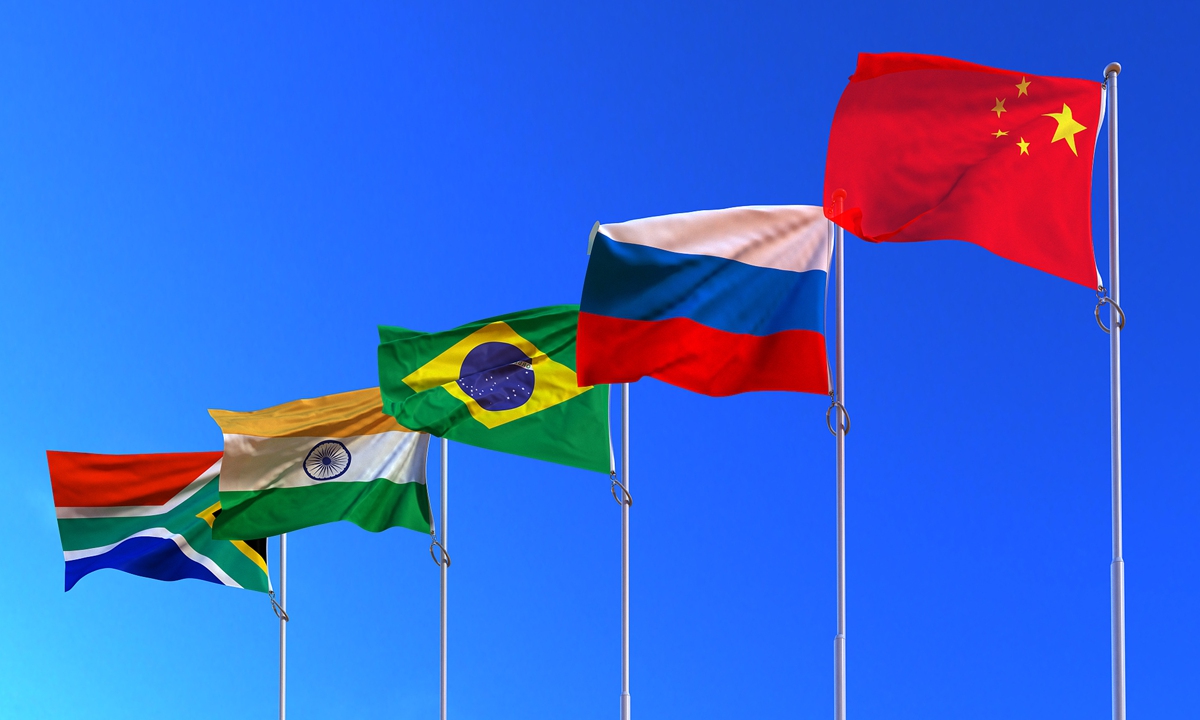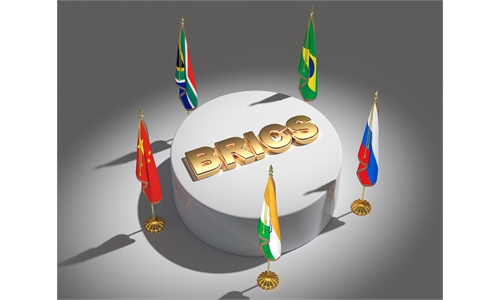Emerging markets represented by BRICS members become important force driving world economic growth amid decline of West: observers

File Photo: VCG
As the US-led West incites ideological confrontation and geopolitical tensions in a volatile world with disregard for the welfare of their people, emerging markets and developing countries, represented by the BRICS member states, are becoming an important force in driving global economic growth and maintaining world peace, experts and officials from home and abroad said at an event on Tuesday.
The Dialogue of Local Governments between China and Emerging Markets and Developing Countries, initiated by the Chinese People's Association for Friendship with Foreign Countries (CPAFFC), was held in Beijing in an online and offline format on Tuesday.
Under the theme of "Solidarity and Cooperation for Common Development," participants had in-depth discussions on promoting friendly exchanges and mutually beneficial cooperation among local governments and on global development issues of common interest.
"The world is not at peace, with the global economy facing serious recession, industrial and financial supply chains suffering great damage, and various 'natural disasters' including the COVID-19 pandemic, monkeypox and climate change, but also 'man-made disasters' caused by geopolitics," Lin Songtian, president of the CPAFFC, said at the meeting.
Lin said some countries have clung to a Cold War mentality, fomenting ideological confrontation while weaponizing economic cooperation. They devote themselves to creating geopolitical tensions to maintain their own hegemonic position, while having neither the intention nor the ability to tackle challenges for the well-being of their people. Such tactics are against the trend of the times and are immoral, Lin noted.
In contrast, the BRICS cooperation has always upheld the concept of mutual respect and always insisted on win-win cooperation and common development over the past 16 years. It has become an important force in driving global economic growth, maintaining world peace, improving global governance, and promoting the democratization of international relations, Lin said.
The growing trend of emerging markets and developing countries is irreversible, and so is the decline of the Western world, experts said at the event.
Twenty years ago, the BRICS accounted for only eight percent of the world economy. Today, with 42 percent of the world's population, they account for 25 percent of the world economy, contributing 50 percent to world economic growth. Together with developing countries, the contribution to world economic growth is more than 80 percent, the Global Times learned from the event.
Echoing Lin's remarks, Ivan Melnikov, first deputy chairman of the State Duma of Russia, said that the modern world faces changes and crises on an unprecedented scale.
"However, a crisis is not only a danger or a threat, but also an opportunity. We now have an opportunity to move away from the unipolar system imposed on the world by the US to create a truly multipolar international system based on the principles of the UN Charter and international law," Melnikov said.
Local governments, friendship cities in particular, are the mainstay for deepening international cooperation, the participants agreed, noting that the event has injected positive energy into a volatile world.
The dialogue gathered officials of 138 provinces and municipalities and representatives of 14 organizations from 18 countries, including China, Brazil, Russia, India, South Africa, Indonesia, Iran, Ethiopia, Senegal and Argentina.

